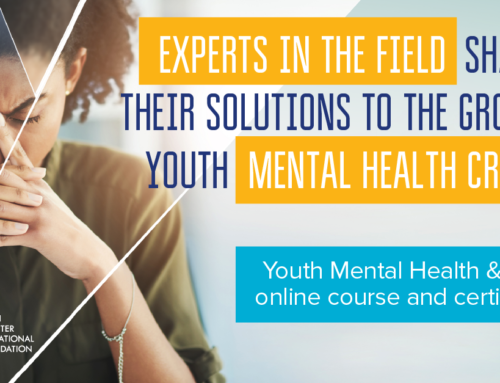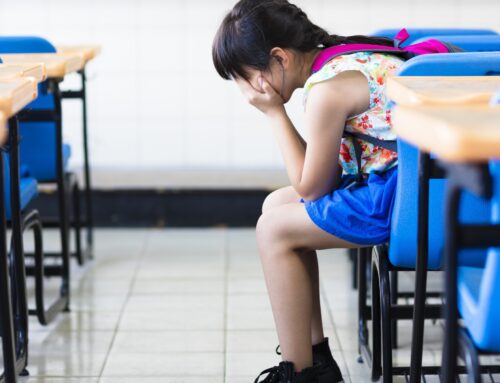
You’ve decked the halls, it’s a winter wonderland outside, and Santa Clause is ready to come to town. It’s the most wonderful time of the year, and yet ‘tis the season…to be stressed?
Despite your best efforts to get into the spirit of the holidays, you just can’t shake the feeling of dread as you try to juggle festive events, last-minute purchases, and holiday planning with regular life, including school.
This scenario probably sounds familiar whether you’re a parent, student, or teacher.
The holiday season is notoriously stressful. Surprisingly, despite our adoration for the season, up to 45% of Americans dread the holidays more than they enjoy them. They’re willing to skip the season altogether if it means skipping the extra pressure.
For some of us, the holidays even bring extra negative emotions, such as grief, anxiety, or depression, and some associate the season with higher addiction or health struggles.
Happily, some great tips are available to help us navigate this holiday season and manage the additional stress!
What the Stats Say
While holiday-related stress hits nearly everyone, the research says that specific groups are harder hit than others. For instance, lower-middle-class families typically feel the season’s pressures more than others. Financial strain, worry about time off work, and outside stressors affect them a little differently.
A large majority of research participants concluded that work stress was a primary source of anxiety during the holiday season. In a paper from Greenberg Quinlan Rosner Research, they note, “During the holidays, however, sources of work stress change. People worry about whether work obligations will creep into their holiday celebrations; a third (34 percent) cite this as a very significant or somewhat significant impact on their stress during the holidays. Similarly, a third (31 percent) feel stress from not being able to get enough time off at work to enjoy the holidays.”
Another shocking statistic shows that fifty percent of American children will experience at least one divorce before they are eighteen. Ten percent will experience at least three divorces in the same time frame. Difficult family situations, dysfunctional families, and splitting holiday time between family members add extra stress to students in addition to the extra pressures of school events and assignments before winter break.
Fight the Stress
Without skipping the holidays altogether, stress will likely remain a part of the festive season. However, with some simple techniques, you can reduce the pressures and enjoy your holiday season!
For the Adults in the Room
Communicate
Communication during the holidays goes a long way toward lessening holiday drama and keeping everything moving smoothly. Make time ahead of the holidays to communicate with those important to your holiday schedule. Are you celebrating at Aunt May’s or Grandma’s this year? Make sure the entire family is on the same page early on.
Don’t forget to communicate all your holiday plans and schedules within your own household, too. Ensuring everyone knows the plan through this busy time will keep the calendar from becoming double booked or causing you to miss something you’d rather attend.
Early communication and creativity can help smooth the rough waters and keep your blood pressure from skyrocketing once the season is in full swing! Communicating with your child’s teacher can also lighten the stress on you both. Knowing what’s going on ahead of time helps ensure that school requirements are completed correctly before the Christmas break commences.
Gifts
More than half of Americans experience holiday stress related to gift-giving. Contrary to the traditional purpose of this time-honored tradition, commercialism, family strains, and societal and peer pressure have created an atmosphere where offering our loved ones a token of our affection is more of a burden than a labor of love.
To counter gift-giving stress, try thinking outside the box! Rather than spending funds you don’t have on items no one really needs, try going for a more personal touch. Bake your loved one their favorite goody, offer an act of service (perhaps help them pack away all those holiday decorations!), or gift them your time going out to lunch or visiting their favorite art museum with them. Personalized gifts are terrific inventions, with calendars loaded with photos of grandkids or a photo book with your memories over the last year.
These strategies work well in the classroom and out. Gifts for teachers are the perfect opportunity to get personal and demonstrate how much that individual means to your student!
Giving during the holidays shouldn’t be a point of stress. Gifts should be an act of love directly from the heart. Find what works for you and optimize the joy of loving your family and friends!
Create a budget ahead of time and stick to it
The holidays have the uncanny ability to eat away at funds unexpectedly. Creating a budget and committing to it before you’re in the thick of the holiday spirit helps alleviate stress later on.
Decide on subcategories, such as gifts, events, parties, and family traditions, and consider how much you’re willing to allocate for each one. Don’t forget any expenses related to your kids’ school over the holiday season!
Share the load
The “to do” list can engulf your life pretty quickly! Involving the whole family will bring you all together and keep any one family member from becoming overwhelmed. From household tasks to practicing for skits and school Christmas programs together, having everyone participate will keep things rolling more smoothly!
Teachers can share the load too. Ask parents to participate in specific holiday projects. Delegate tasks to students. This is a wonderful opportunity for kids to learn how to step up, take a leadership position, or practice organizational skills!
Tips for All
It’s OK to let go
While fun family traditions, conventional activities, and all the holiday events are great, sometimes, you just can’t do it all. Try to analyze your stress and pinpoint the primary sources. Is it coming from within or from others? Societal pressures? Family expectations? Personal standards? Once you’ve identified the cause of your feelings, decide if there are any practical steps you can take to lower the negative influence. If a particular activity is causing more stress than joy, consider cutting it out this year. This includes volunteer work and gatherings with friends.
Bright Horizons suggests, “Learning to say ‘no’ may take some practice. It might feel uncomfortable at first. But taking on too much can be more stressful than ‘passing’ on a request in the first place.”
For teachers, this might include allowing others to help coordinate events or dropping certain classroom projects.
Students, you can say “no,” too, especially to yourself. If you have personal expectations, consider giving yourself some grace. Don’t try to do it all. Relaxation, fun, and giving your brain a rest are vital to keeping your holiday stress down.
Routines
Sticking to your personal or family routines keeps everyone in the household grounded during a busy and somewhat chaotic season. It can be a challenging goal, but routine has a calming effect, too. It’s also okay to adjust it a little bit to move with the holidays, but remember that the point is to maintain stability and normalcy.
Remember that “routine” can include food, drink, and snacks. Too much junk food, especially if you’re not used to it, will affect your mental, emotional, and physical well-being. Don’t sabotage yourself!
Sleep is vitally important for mental, emotional, and physical health. Don’t sacrifice your regular sleeping hours for holiday zest. Children especially need their sleep and sticking to your family’s evening rituals will help ensure they enjoy adequate rest.
Teachers, you can maintain the classroom routines despite the holiday disruptions. Doing so will give your students a sense of stability, especially since many of them may not experience this at home.
Students, routine will give you a place to start when life becomes overwhelming. Don’t chuck your normal daily flow to participate in the holidays. Work the festivities around your life, not the other way around.
Mental and emotional
If your stress results from grief, anxiety, or depression, reach out. The holidays can be especially tough on mental health and triggering for those suffering from grief. Don’t try to go it alone. Acknowledge the sources, accept change, and allow yourself to feel all the feelings. Maintain your coping techniques and work to find joy in the season. It’s ok not to be ok, but don’t let the difficult emotions keep your stress levels sky-high. Stress isn’t good for your mental, emotional, or physical health.
Teachers, your students may struggle more this time of year than others. Be available to help them, but don’t allow your empathy to have a negative impact on your well-being. Offer what you can to each child, and then help them find the help they need through other productive channels.
Students, you must communicate with a trusted adult if you’re struggling. No one should have to do this alone, especially a kid. Find your support system and rely on them to help get you through.
Exercise
“Sixty-two percent of adults who say they exercise or walk to help manage stress say the technique is very or extremely effective.”
This excerpt from The American Psychological Association highlights just how important physical activity is when you’re feeling stressed. The article goes on to note that exercise also helps with cognitive function, which is especially beneficial for students and teachers racing against the calendar in the classroom.
While the holiday season can be hectic, you must take some time for yourself and work out however you can. Not only will this help manage stress, but it will also free up some extra calories for those holiday goodies!
Teachers, your students need this stress-relieving activity, too! Especially if you can’t find the time and effort once school is out for the day, include your class and get physical together. You can do more conventional exercises or get creative and fun! The point is to get your blood flowing, your heart rate up, and those endorphins flooding your brain!
Students, take the initiative! Take the time to work out a little bit every day. Don’t let the holidays pass by with you just chilling on the couch or stressed out of your mind. Allow your body the opportunity to find relief through movement.
Common Not Normal
While holiday stress is common, it’s not the historical norm. Our world today contains so many unique challenges that past generations didn’t commonly face. It’s time for us to acknowledge the sources of our seasonal stress and address them.
Let’s take back the joy and magic of the holidays through helpful strategies and forethought!





[…] attachments and good communication are two of the most important things in a child’s life. They are critical for a child or teen to […]